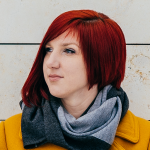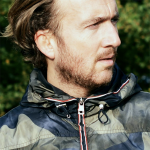Pecha kucha |
||||||||||
|---|---|---|---|---|---|---|---|---|---|---|
Introduce yourself with one slide in 40 seconds! This session is inspired by the well-known presentation format (Pecha Kucha) and adapted to our needs and time requirements. The purpose of the presentations is that people with similar interests can find each other. Every participant has to prepare a single slide about themselves and/or their PhD work. The slide has to be static (no animations, sounds or videos). The slide format ration should be a standard 4×3. The slides should be submitted in advance. During the session, the slides will change automatically every 45 seconds.
|
Evening keynote “Context Engineering in TEL” |
||||||||||
|---|---|---|---|---|---|---|---|---|---|---|
XR (Cross or Extended Reality) is an umbrella term that attempts to simplify the understanding and adoption of the full range of immersive technologies that generate new forms of reality, “In the future we will see people interacting with the virtual world and real world in seamless, frictionless, and continuous ways, not bound by delineations of experience between VR, AR, and MR”. As we increasingly move from Human Computer Interaction that was limited to operating within a 2D flatland to full 360 degree spatial computing, the XR Experience Design Framework is intended to manage the seamless stacking of these realities and their interactions. Contextology is the science of Context Engineering (CE). Context Engineering attempts to manipulate and create context directly. This is achieved where we are enabled (via CE tools) to reconfigure our own perception and cognitive abilities directly (individually or in groups) as the primary ‘content’. This means that the lenses through which we experience the world are becoming more adjustable than ever. CE ultimately has the potential to gamify reality itself, creating a playground of easily accessible perceptual realities. The CE techniques we will explore include Sensory Augmentation, Perceptual Adaption, Artificial Senses, Body Hacking and Natural Media. What you will learn:
|
Pitch and poster session |
||||||||||
|---|---|---|---|---|---|---|---|---|---|---|
At this session, all PhD students will have an opportunity to present their research and discuss it with both experts and with other PhD students. All PhD students are invited to bring a poster and prepare a 30-seconds pitch. All instructors are encouraged to participate and give feedback.
|
Board game night: “How to fail your research degree” and other games |
||||||||||
|---|---|---|---|---|---|---|---|---|---|---|
How to Fail Your Research Degree was created to deliver knowledge and understanding of research processes and techniques, within the context of a postgraduate training program at Glasgow School of Art. Development was in relation to the concepts of encouraging creativity and risk-taking within a safe game environment and of learning by (potentially) failing. Game characteristics and intended learning outcomes were defined, leading to game mechanics and text that emphasize player agency, working within a time limit, and humor. This game will be played two times, each time – by eight players. A total of 16 players will be able to play. It will be possible to sign up at Tuesday dinner (just before the session).
|
Speed mentoring |
||||||||||
|---|---|---|---|---|---|---|---|---|---|---|
The hall will be organized into several “stations”. At each station, a senior participant will be located (every participant who currently holds a PhD degree). The PhD students will choose a station for a 10-minute conversation. If the number of PhD students is too high, two PhD students can attend a station (or a number as little as possible). After 10 minutes, a switch will be announced. The PhD students will have to relocate to another station. At each round of speed mentoring, the PhD students will be asked to write on one or more post-its with the main outcomes from this discussion. The post-its will be kept until the end of the session and shared later. The session will end with a plenary where we will read the post-its and discuss the main outcomes.
|



